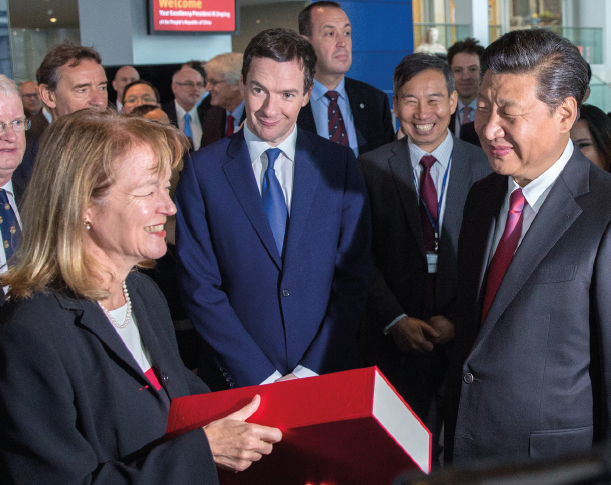Chinese infiltration? MI6 say Imperial academics could be arrested in weeks
The Daily Mail has reported that MI6 is investigating Imperial and other Russell Group universities for links to the Chinese defence industry

Civil servants have drawn up lists of academics at UK universities suspected of passing confidential information to China, including technology that may have been used to track and repress dissidents.
The University of Manchester and Imperial College London are believed to be two of the worst candidates with Oxford and Cambridge also under investigation.
Imperial was named back in 2019 by the Australian Strategic Policy Institute (ASPI) as one of the major hosters of Chinese defence company and People’s Liberation Army research.
At the time, the Advanced Structure Manufacturing Technology Laboratory at Imperial was named as being in partnership with the China Academy of Lauch Vehicle Technology which worked on developing space launch vehicles and intercontinental ballistic missiles.
In addition to this, work on 5G networks, artificial intelligence programmes designed to better identify individuals in surveillance footage and military patrol drone swarm control were other topics of research carried out by UK universities in collaboration with Chinese institutions that the report raised as concerning.
Despite Imperial’s statement at the time that “These collaborations support research into fundamental technologies which could help develop lighter, safer and more efficient commercial aircraft worldwide.” and that “Prior to formalising these collaborations, Imperial conducted its own due diligence. We worked with and received support from the Export Control Organisation (ECO), and we continue to work closely with the UK government. All relationships with third parties are subject to prior and continued review” these warnings from 2019 do not seem to have been heeded.
Relationships between the Chinese aerospace industry has previously been so close as to risk US sanctions.
Research funded by Chinese firm Avic, the main supplier of aviation technology to the PLA has previously put Imperial at risk of secondary sanctions after a subsidiary of the firm was placed on a watch list for working on Iran’s ballistic missile programme.
While Imperial scientists were found to be working on basic, not applied research, the lab was headed by a participant in the Chinese Government’s Thousand Talents Plan a controversial scheme to recruit scientists from abroad.
The Mail on Sunday reported on Sunday that “spies” working as academics were being investigated at Imperial.
This builds off an investigation by HMRC into commercial relationships with the Chinese government that might break laws designed to protect national security and human rights. Academics found guilty of violating the Export Control Order 2008 may face up to 10 years in prison.
Work with Chinese companies is treated as suspect due to an initiative announced by Chinese Premier Hu Jintao in 2007 called ‘military-civil fusion’. This was further elevated to a national policy 8 years later by current Premier Xi Jinping. This policy mandated the sharing of civilian research with potential military applications with government researchers.
Since 2015, mentions of ‘military-civil fusion’ in Chinese research journals have more than doubled, reflecting the close integration between private and public research bodies.
Independent research by Felix has found that Huawei, the well-known phone and technology company has funded as much as £4.5 million of research in the Department of Electronic Engineering since 2015 with research initiatives focused on biometric data analysis receiving as much as £1.5 million.
In addition, Chinese companies have been found to be complicit in the repression of minorities.
Felix has found a patent filed by the China State Railway Group in 2018, the state-owned company owns and operates virtually all passenger and cargo trains in China. It was formerly the Ministry of Railways and the company still controls China’s Railway Police.
The patent describes a security checkpoint system, which is capable of reading and validating travellers’ ID documents, carrying out facial recognition checks and uploading these information to a server. “Depending on different stations’ needs”, it says, the system can be configured to “isolate special groups, Xinjiang and Uighur travellers”. “The system will signal once the aforementioned groups are checked, prompting staff members to perform further security checks”.
It has been widely known that Uighur and other minority groups are specifically targeted within Xinjiang at security checkpoints, but the authors of the patent have no particular ties with Xinjiang and the document made no mention to Xinjiang elsewhere, meaning the system it proposed may be deployed at a nation-wide level and target Uighurs living outside Xinjiang as well.
These findings raise the possibility that research afflictions with Chinese companies can not be relied upon not to benefit the Chinese state and army or contribute to ongoing oppression.
Universities such as Imperial are particularly vulnerable to Chinese influence and infiltration due to their close ties. Chinese President Xi visited Imperial in 2015 to highlight Imperial’s role as “the premier partner for research collaborations with China”.
26% of Imperial’s income is estimated to come from Chinese students making it vulnerable to an abrupt withdrawal.
The close research relationship between Imperial and China has extended as far as an ongoing scholarship programme that has brought 15 students from Harbin Institute of Technology to Imperial every year since 2013. Harbin is known as one of the ‘Seven Sons of National Defence’ a group of seven universities with strong connections and deep roots in the military and defence industry. These institutions are given access to ‘Top Secret’ classified weapons research and describe themselves as defence science institutions.
Furthermore, The Mail on Sunday has identified several beneficiaries of this programme that have since returned to Harbin having completed their PhDs.
For the moment, the fate of Imperial researchers remains up in the air. However, this episode is one more blemish on the record of President Alice Gast who seems to lurch from crisis to crisis.
Imperial has been approached for comment.






